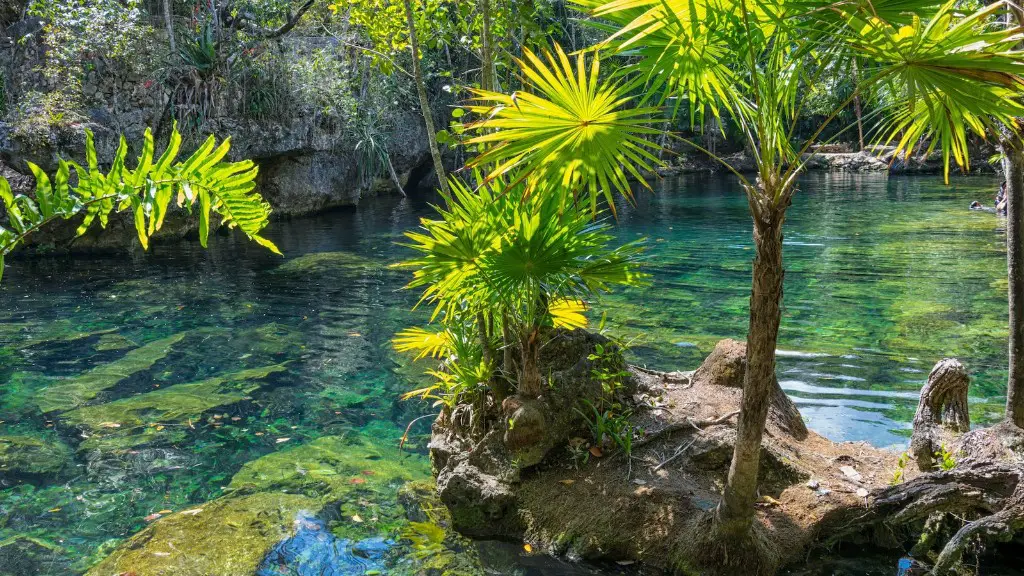Is the Nile River Safe to Drink?
The Nile River is the longest river in the world and one of the most important rivers in Egypt. Its waters are integral to sustaining life and livelihoods in the region, and even providing drinking water to many communities in North Africa. But is the Nile River safe to drink?
The short answer is no. The water of the Nile River is considered contaminated and unsafe for human consumption. Although it is generally not hazardous to come in contact with the surface water, the water is often contaminated with disease-causing bacteria, viruses, and parasites.
The primary causes of contamination in the Nile River water are human sewage and agricultural runoff from farms, which contains pesticides and fertilizers. The water quality in the Nile is further degraded by industrial waste from mining, oil production and chemical manufacturing. The pollution from these sources results in a consistent decrease in water quality, along with associated risks to human health.
According to the Nile Basin Initiative, water quality in some parts of the Nile has deteriorated to the point that it exceeds the limits for safe drinking water laid out in the WHO (World Health Organisation) guidelines. Furthermore, the higher levels of pollution can affect the natural aquatic life, leading to long-term environmental damage.
The Egyptian government is taking steps to improve the quality of the Nile water, through the development of modern sewage systems, water treatment plants and irrigation projects. However, it is important to note that in some areas there are still not enough resources in order to implement effective water management strategies.
The ultimate solution to this problem is to increase public awareness of the importance of the environment, and to work together to minimize the damaging effects of pollution and inefficient water management. The importance of this issue is underscored by the fact that the Nile is an important source of drinking water and an essential source of nutrients for many people who rely on its waters for their survival.
Economic Impact of Nile River Pollution
The economic effects of Nile River pollution will be significant for all countries involved in the Nile Basin, as it affects the Nile’s traditional use as a source of energy as well as its ability to offer economic and food security to communities along its banks.
The environmental damage caused by the contamination of the Nile River is also likely to lead to a decline in the tourist sector and cause a decrease in the production of agricultural products. In addition, increased levels of pollution will lead to higher health costs, due to health issues caused by the pollutants.
The economic impact of the Nile River pollution is likely to stretch beyond the countries of the Nile Basin, with the harmful effects of the pollution likely to travel to other parts of the world. The pollution from the Nile River can get into other water resources, including rivers in neighboring countries, as well as the Mediterranean Sea, spreading the damage further.
It is, therefore, essential that the governments of the countries affected by the Nile River pollution take steps to reduce the pollution levels in order to protect the economy, food security, and the health of their citizens.
Environmental Impact of Nile River Pollution
The environmental impact of the Nile River pollution is broad and far-reaching and will affect both the physical environment and the lives of humans and animals living in the Nile Basin. The contaminated river water can lead to a decrease in species diversity, as the high levels of pollutants can be toxic to many living organisms.
The pollution from the Nile River also has the potential to affect the quality and quantity of food production in the region, due to the risk of contaminated water for growing crops and for feeding livestock. Furthermore, the pollutants can accumulate in the tissue of the river’s living organisms, meaning that the food from the area can contain dangerous levels of the pollutants.
Incidents of waterborne diseases are likely to increase due to the river water’s contamination with pathogenic bacteria, parasites, and viruses. This means that people and animals will be more exposed to diseases such as typhoid, cholera, schistosomiasis, and giardiasis that are able to spread through contact with contaminated water.
The consequences of a polluted river are devastating, but with concerted effort and cooperation, the level of contamination in the Nile can be reduced. The development of effective water management strategies can help to improve water quality, reduce the risk of waterborne diseases, and protect the environment and the lives of the people who depend on the Nile.
Economic Solutions for Improving Nile River Water Quality
The most important solution for improving the quality of the Nile River water is economic. By investing in modern sewage systems and water treatment plants, countries in the Nile Basin can reduce the amount of waste and pollutants being discharged into the river system.
In addition, governments could consider introducing incentives and subsidies in order to incentivize companies to invest in environmental protection. This could include taxing companies that produce waste and invest the funds in cleaning up the river and riverbanks. Furthermore, governments could fund research projects to study the effects of pollution and develop water management strategies that reduce the impact.
Also, governments should consider introducing regulation that prevents companies from dumping waste in the Nile River, imposing fines and other legal punishments for companies that violate the regulations.
Finally, governments could implement cooperation initiatives to increase public awareness and knowledge about the detrimental effects of pollution on the environment and human health, as well as encourage Gulf States to invest in the development and implementation of effective water management strategies.
Environmental Solutions for Improving Nile River Water Quality
The environmental solutions for improving the quality of the Nile River water vary depending on the region and specifics of the pollution. Some of these solutions include controlling water levels and erosion, encouraging the growth of riparian plants, and constructing artificial wetlands.
Controlling water levels is important, as it can help to reduce the impact of high levels of pollution. This can be done by constructing dams or digging canals to divert the water away from polluted areas or decrease the floodwaters.
Encouraging the growth of riparian plants, such as reeds and grasses, can help to absorb pollutants from the water. These plants are more effective at trapping pollutants than other natural aquatic plants and can also help to improve the water’s oxygen levels.
Artificial wetlands can also be effective at improving water quality in the Nile River. These are man-made ponds that rely on vegetation and the filtration of sediment and organic material for their purification capabilities.
In addition to these solutions, governments should also consider investing in more efficient irrigation systems and water-saving technologies, such as water-saving toilets and rainwater harvesting systems. This will help to reduce the amount of contaminated water that is entering into the river.
International Cooperation and the Preservation of the Nile River
In order to effectively manage and protect the Nile River, countries in the Nile Basin must work together. The development of cooperative agreements, such as the Nile Basin Cooperative Framework Agreement, is essential for the successful protection of the river.
The agreement provides a platform for the countries to share resources and coordinate efforts to protect and manage the river. It sets out goals for the countries to reduce pollution and improve water quality, protect and preserve the environment, and promote sustainable development.
The Nile Basin Cooperative Framework Agreement also establishes the Nile River Commission, which is responsible for overseeing the implementation of the agreement. This body has the power to impose sanctions on countries that violate the treaty, if necessary.
Furthermore, cooperation among countries in the Nile Basin is essential for the successful implementation of water management strategies. Countries should share their resources and knowledge in order to develop strategies and programs that minimize the damaging effects of pollution.
International organizations such as the United Nations can also be a powerful force for the preservation of the Nile River, with the organization providing much-needed funding to help countries in the region implement effective water management strategies.





